Search Results
Showing results 1 to 20 of 39
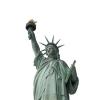
Measurement: How Many Noses Are in Your Arm?
Source Institutions
In this math lesson, learners apply the concepts of ratio and proportion to determine the length of the Statue of Liberty's torch-bearing arm.
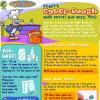
Digit's Cyber-Dough
Source Institutions
In this fun hands-on activity, learners whip up a batch of cyber-dough (play dough) using math for measurements.
Measuring Rules
Source Institutions
In this math activity, learners create their own units of measurement by making noodle rulers. Learners practice estimating and measuring objects using the noodle rulers .

Incredible Shrinking Shapes
Source Institutions
In this activity, learners get hands-on experience with ratios and scaling while making their own jewelry out of recycled plastic containers.
Soaring Towers: Building with Recycled Materials
Source Institutions
In this activity, learners will build the highest tower they can out of recycled materials.
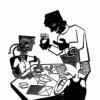
Greeting Card Boxes
Source Institutions
In this activity, learners make cool boxes out of old (or new) greeting cards or postcards.
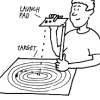
Seedy Travelers
Source Institutions
In this activity (on pages 18-28), learners explore how the shape of seeds affects how they are dispersed by wind, birds, ocean currents and other means.
Caterpillar Measure
Source Institutions
In this activity, young learners use different-sized paper 'caterpillars' and various household items to predict and measure their height.

Size, Scale and Models
Source Institutions
In this activity, learners take measurements and create charts to learn about the size of dinosaurs and their relative scale to humans.
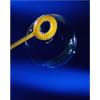
Measurement: Bubble Mania
Source Institutions
In this math lesson, learners practice measurement skills as they examine a soap bubble print. Learners follow a recipe to make a soap bubble solution.
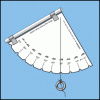
Making a Simple Astrolabe
Source Institutions
In this activity, learners make an astrolabe, a device used for measuring altitude, including the height of objects in the sky.
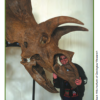
Supersize That Dinosaur
Source Institutions
In this activity, learners explore the size and scale of dinosaurs. Learners listen to "The Littlest Dinosaurs" by Bernard Most. Then, learners estimate the size of a Triceratops and T.
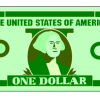
Measurement: Million Dollar Giveaway
Source Institutions
In this math lesson, learners apply measurement skills to determine, in dollar bills, the capacity of a suitcase.
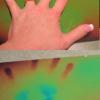
Try Your Hand at Nano
Source Institutions
This lesson focuses on two simple activities that younger learners can do to gain an appreciation of nanotechnology. First, learners measure their hands in nanometers.
Building Houses: Build a Cardboard Tube House
Source Institutions
Build a house you can fit inside, using cardboard tubes.
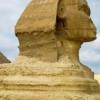
Egyptian Measuring
Source Institutions
In this activity, learners compare the ancient Egyptian system of measurement, which was based on body lengths, to the customary and metric systems used today.
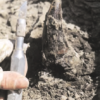
Compare Dinosaur Body Parts
Source Institutions
In this activity, learners explore the size and scale of dinosaurs. Learners listen to "The Littlest Dinosaurs" by Bernard Most to learn about the different sizes of dinosaurs.
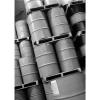
Computation and Estimation: Roll Out The Barrel
Source Institutions
In this math lesson, learners apply mathematical modeling to solve a real-world storage problem, in which a manufacturing company is given two options for storing oil barrels.
Piece It Together: Puzzle Hunt
Source Institutions
In this activity, learners follow clues to find five puzzle pieces, then assemble them. This activity works well with a whole group, individuals, or families.
Shady Snakes
Source Institutions
In this activity, learners make pretend snakes and use them to explore estimation and measurement. Learners roll out clay snakes and estimate and measure their lengths and diameters.
